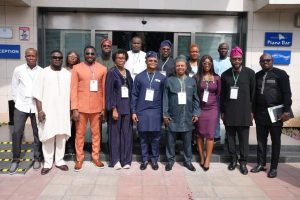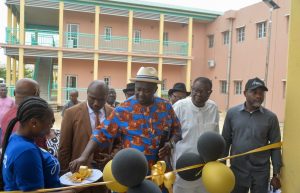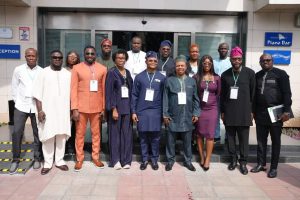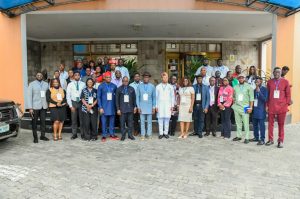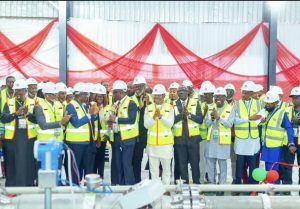The Nigerian Content Development and Monitoring Board on Tuesdayin Yenagoa, Bayelsa State organized the 2nd Nigerian Content Media Workshop for journalists working in the South-South states.
The workshop attracted over 60 journalists drawn from Bayelsa, Rivers, Edo, Delta, Cross Rivers and Akwa Ibom States, some of whom were General Managers of private and state broadcast outfits as well as top practitioners from national and local print media organizations.
In his welcome remarks, the Executive Secretary, Engr. Ernest Nwapa explained that the Board organized the workshop because it places premium on the role of the media in the implementation of the Nigerian Content Act.
Nwapa who was represented by the Director of Monitoring and Evaluation, Mr. Tunde Adelana, stated that the workshop was part of the Board’s capacity building initiatives for key stakeholders of the Oil and Gas Industry.
According to him, “We want media practitioners to read and understand the Nigerian Content Act and our mandate, so they will be able to educate their audience and encourage them to get involved in the Industry.”
In his comments, the Chairman of the Nigerian Union of Journalists, Bayelsa State Council, Mr. Tarinyo Akono underscored the need for media practitioners to complement the efforts of the Board.
He commended the Board for collaborating with the NUJ on a number of initiatives, the most recent being the cash donation towards the installation of an electricity transformer at the NUJ Secretariat in Yenagoa.
Making his presentation, which provided an overview of the Oil and Gas value chain, the Deputy Manager, Strategy, NCDMB, Mr. Abdulmalik Halilusaid that though Nigeria is amongst the high ranking oil producers,it was not a high ranking oil economy.
He attributed the situation to the inability of Nigerians yet to take advantage of the local oil industry to stimulate associated industries that will create jobs and benefits for the populace.
Halilu stated that the country had oil reserves estimated at 37.2billion barrels, which made it the 10thoil rich country in the world and hada daily production figure of 2.5m barrels per day, which stood it as the 13thoil producer in the world.
Speaking on the Role of Nigerian Content in National Development, Mr. Adelana regretted that Nigerians did not participate actively in the value chain of the oil and gas from 1958 to 2008, with the focus being on revenue receipts.
He said this was changing rapidly with the Board’s implementation of the Nigerian Content Act as Nigerians were now beginning to take major stakes in the entire operations of the industry.
Adelana stressed that the implementation of the Act was focused ondomiciliation of the operations of the industry and not nationalization, adding that insisting on the execution of industry activities in-country was a sure way to create employment for Nigerians.
Speaking on Optimal Reporting of Oil & Gas & the Extractive Industry, Dr. Isah Momoh of the School of Media and Communications, Pan-Atlantic University, Lagosexplained that the modern concept of news includedinformed analysis and commentary.
“The modern journalist should be involved;he should be objective, analyse and give every side of the story opportunity to comment, given the time constraint.”
The Mass Communication scholar charged journalists to take keen interest in reporting the Oil and Gas industry, particularly Nigerian Content so as to ensure that Nigerians benefit optimally from the industry.
He insisted that the job of deepening the participation of Nigerians in the Oil and Gas Industry cannot be left for the Board alone, but will rather become successful when journalists quiz operating and service companies on their compliance with the Nigerian Content Act.
The event featured four presentations and lively interactions from the journalists who commended the Board for organizing the workshop.
Discover more from Nigerian Content Development & Monitoring Board
Subscribe to get the latest posts sent to your email.


